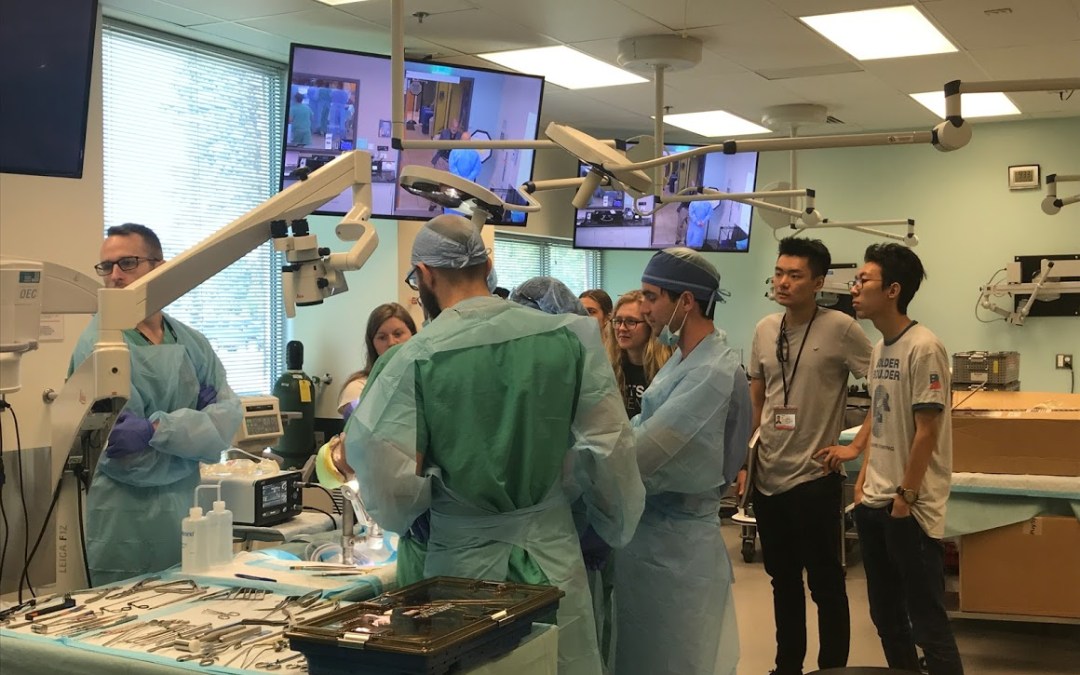
The University of Colorado Cancer Center Cancer Research Summer Fellowship (CRSF) program provides the opportunity for about 40 undergraduate students to learn the basics of cancer research over the course of 10 weeks working in the laboratories of scientific mentors. In addition, the program helps participants explore the range of careers related to cancer science. One of these activities aimed at opening students’ eyes to career possibilities is the Explore Biotech Fieldtrip. This July, students visited the Biosciences 2 building, just north of the Anschutz Medical Campus, to see biotech in action.

“The biosciences buildings are incubators for startups, many of which are built around technologies that investigators discovered or developed here at CU. Because of my experience working in Tech Transfer with CU Innovations, I had an appreciation for how ideas become companies, and how innovations within companies get brought into public use,” says Education Manager, Jill Penafiel, who pioneered the Explore Biotech Fieldtrip in 2011.
The first stop was the CU Center for Surgical Innovation, where students observed third-year neurosurgery residents exploring new surgical techniques while operating on cadaver heads. In fact, one of the residents operating that day was a past participant of the CRSF program in 2012.
“It was really neat to see Dr. Timothy Ung in the surgical center!” Penafiel says. “Here was someone who was in the program many years ago as an undergraduate, now showing our current students one of the career paths open to them.”

Next, the group visited the Gates Biomanufacturing Facility where students learned about the manufacturing of cell lines, cell-based therapeutics, and biologic proteins used in basic science and clinical trials.
“Each area that we went today was amazing. It is great to see other facets of science/health care and to be reminded why I am excited for the future of medicine,” wrote one student about the experience. Another commented, “I earned a great deal, and it was definitely motivating to see so many cool applications of science.”
Then it was on to Touch of Life Technologies (ToLTech), the startup built around the innovative project by Vic Spitzer, PhD, to “thin slice” a human body to build a high-resolution digital representation of human anatomy.

“Students had the chance to experiment with two virtual reality setups of the visible human – they could remove and look at body parts within this virtual human standing directly in front of them,” Penafiel says. “I put on the VR mask, I walked into the back of the head of the person, and I could see the muscles holding the eyeballs in place. I also looked down through the body and saw the pelvic bones and interior structure. It was incredible!”
On a survey following the fieldtrip, 70 percent of students said they would consider a career in biotech. 100 percent of students asked that the field trip continue to be offered as part of the Summer Fellowship Program in future years. In fact, due to the success of this outreach, Penafiel plans to expand students’ opportunities to interact with area biotech, offering half-day, hands-on experiences as part of the summer 2020 program.
“My hope for an experience like this is to offer the possibility of additional careers for our students that are not only going into medical school. There is so much that can be done!” Penafiel says. “It definitely opened their eyes to the opportunities within biotech.”



